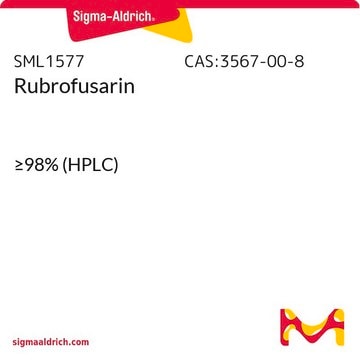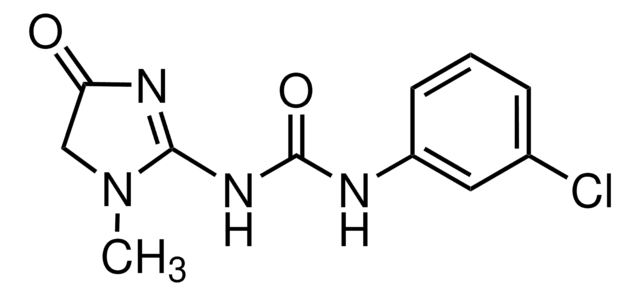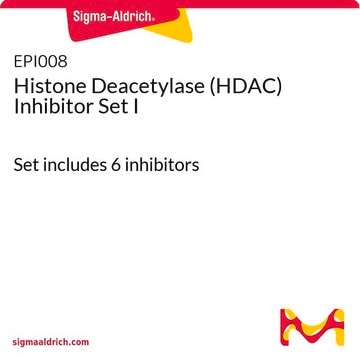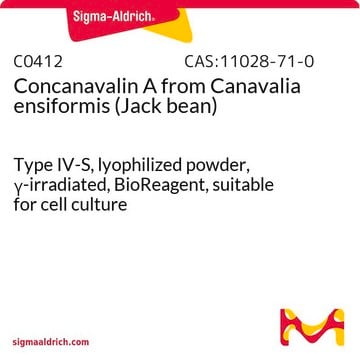Fontos dokumentumok
A8851
Apicidin
≥98% (HPLC), from microbial
Szinonimák:
Cyclo[(2S)-2-amino-8-oxodecanoyl-1-methoxy-L-tryptophyl-L-isoleucyl-(2R)-2-piperidinexcarbonyl]
About This Item
Javasolt termékek
biológiai forrás
microbial
Minőségi szint
sterilitás
non-sterile
Teszt
≥98% (HPLC)
form
solid
oldhatóság
DMSO: ~1 mg/mL
antibiotikus hatásspektrum
parasites
Hatásmechanizmus
enzyme | inhibits
kiszállítva
wet ice
tárolási hőmérséklet
−20°C
SMILES string
[H][C@]12CCCCN1C(=O)[C@@H](NC(=O)[C@H](Cc3cn(OC)c4ccccc34)NC(=O)[C@H](CCCCCC(=O)CC)NC2=O)C(C)CC
InChI
1S/C34H49N5O6/c1-5-22(3)30-34(44)38-19-13-12-18-29(38)33(43)35-26(16-9-7-8-14-24(40)6-2)31(41)36-27(32(42)37-30)20-23-21-39(45-4)28-17-11-10-15-25(23)28/h10-11,15,17,21-22,26-27,29-30H,5-9,12-14,16,18-20H2,1-4H3,(H,35,43)(H,36,41)(H,37,42)/t22?,26-,27-,29+,30?/m0/s1
Nemzetközi kémiai azonosító kulcs
JWOGUUIOCYMBPV-PYAAAQPJSA-N
Általános leírás
Alkalmazás
Biokémiai/fiziológiai hatások
Tulajdonságok és előnyök
Tárolási osztály kódja
11 - Combustible Solids
WGK
WGK 3
Lobbanási pont (F)
Not applicable
Lobbanási pont (C)
Not applicable
Egyéni védőeszköz
Eyeshields, Faceshields, Gloves, type P3 (EN 143) respirator cartridges
Analitikai tanúsítványok (COA)
Analitikai tanúsítványok (COA) keresése a termék sarzs-/tételszámának megadásával. A sarzs- és tételszámok a termék címkéjén találhatók, a „Lot” vagy „Batch” szavak után.
Már rendelkezik ezzel a termékkel?
Az Ön által nemrégiben megvásárolt termékekre vonatkozó dokumentumokat a Dokumentumtárban találja.
Az ügyfelek ezeket is megtekintették
Cikkek
Cancer research has revealed that the classical model of carcinogenesis, a three step process consisting of initiation, promotion, and progression, is not complete.
We offer a variety of small molecule research tools, such as transcription factor modulators, inhibitors of chromatin modifying enzymes, and agonists/antagonists for target identification and validation in gene regulation research; a selection of these research tools is shown below.
Tudóscsoportunk valamennyi kutatási területen rendelkezik tapasztalattal, beleértve az élettudományt, az anyagtudományt, a kémiai szintézist, a kromatográfiát, az analitikát és még sok más területet.
Lépjen kapcsolatba a szaktanácsadással















